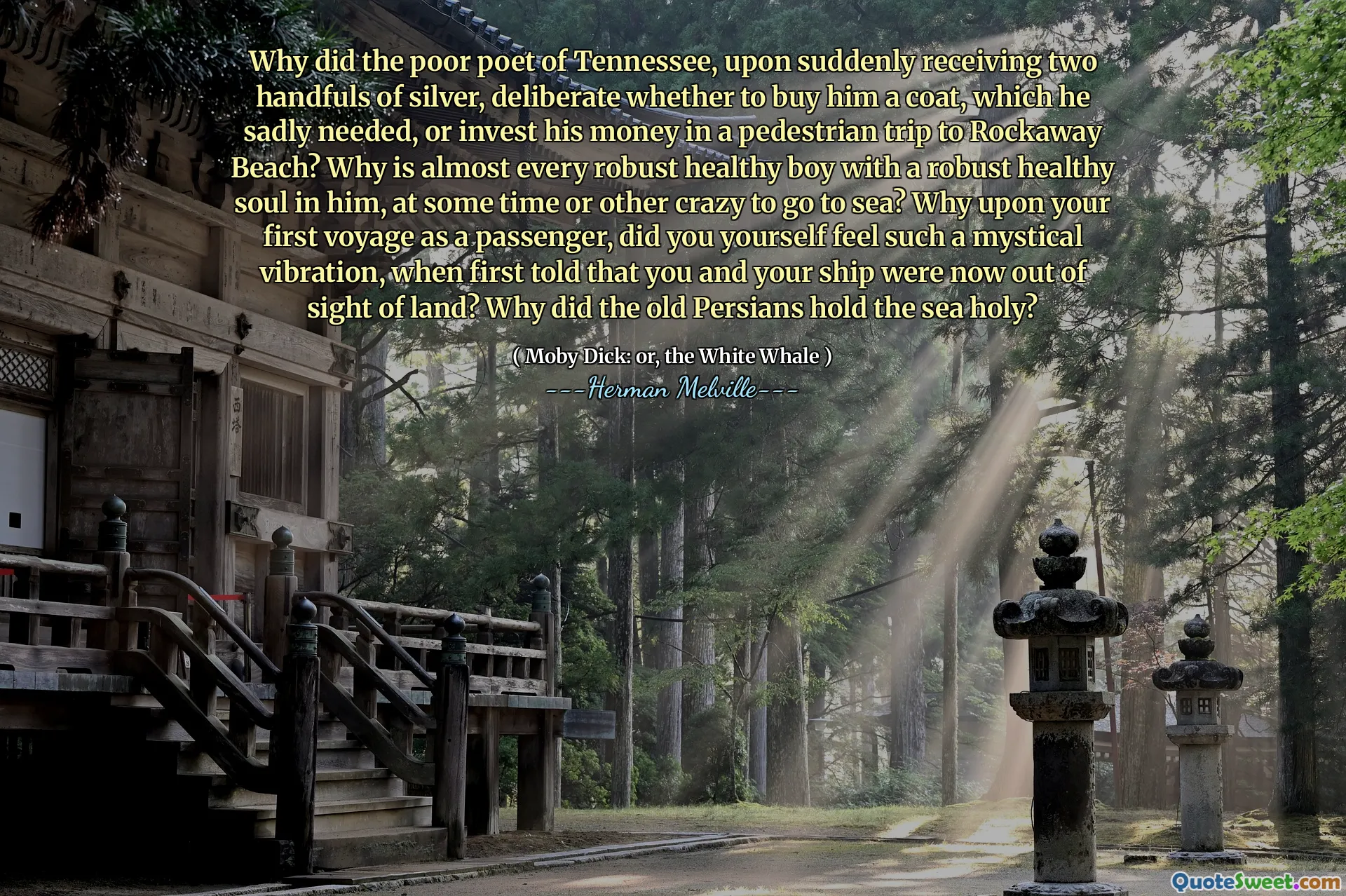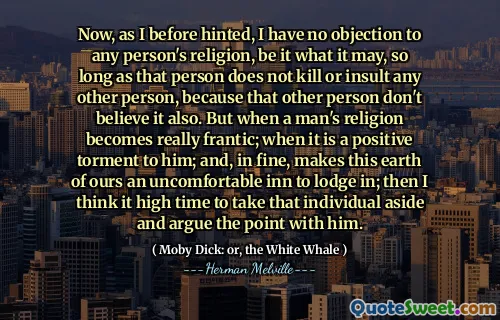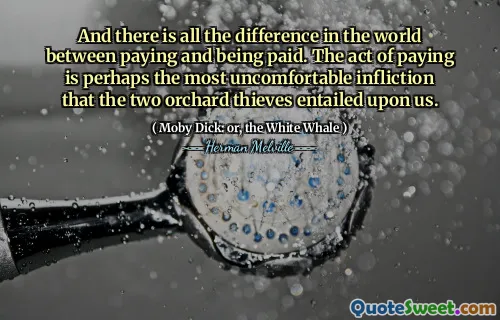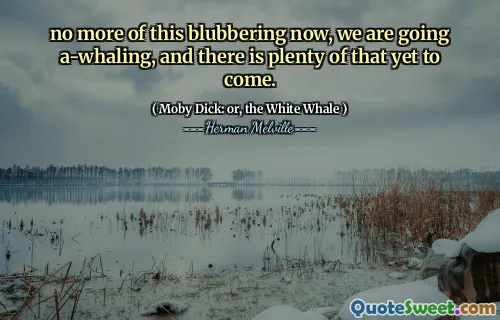
Why did the poor poet of Tennessee, upon suddenly receiving two handfuls of silver, deliberate whether to buy him a coat, which he sadly needed, or invest his money in a pedestrian trip to Rockaway Beach? Why is almost every robust healthy boy with a robust healthy soul in him, at some time or other crazy to go to sea? Why upon your first voyage as a passenger, did you yourself feel such a mystical vibration, when first told that you and your ship were now out of sight of land? Why did the old Persians hold the sea holy?
In Moby Dick, Herman Melville explores the human condition through the struggles and desires of individuals. He questions the motives behind a destitute poet's choice between purchasing a much-needed coat or indulging in a journey to Rockaway Beach, highlighting the struggle between practicality and the longing for adventure. This dilemma reflects a deeper yearning for experiences that transcend material needs, suggesting that adventure can be as valuable as provisions.
Melville further contemplates the innate desire to explore the sea, particularly among robust youth, emphasizing the allure of the unknown. The mystical experience of being out of sight of land symbolizes a profound transformation, evoking a sense of freedom and connection to a larger universe. The reverence the ancient Persians held for the sea underscores its significance as a source of life, mystery, and spirituality, echoing humanity's timeless fascination with the vast and unpredictable waters.











